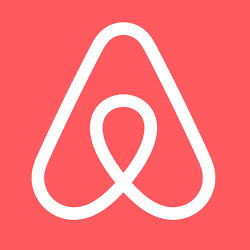 Short-term accommodation sites like Airbnb have become increasingly popular, but there appears to be a bit of confusion over regulations for homeowners. Just because you own the property, doesn’t mean you can just rent it out on a short-term basis without extra costs.
Short-term accommodation sites like Airbnb have become increasingly popular, but there appears to be a bit of confusion over regulations for homeowners. Just because you own the property, doesn’t mean you can just rent it out on a short-term basis without extra costs.
If you’re living in a single dwelling (not a multi-storey building), your house is classified as class 1a, but if you’re regularly renting out your place for short stays, your property will need to be changed to class 1b (a boarding house, guest house, hostel or the like).
According to Bayside Council, each home needs to be assessed individually to see what changes need to be made in order to switch classifications.
This would involve you hiring a private building surveyor (or the municipal surveyor from the council) to view your house, check if it meets the class 1b building regulations and determine whether or not you’ll need a planning permit (this will depend on what council you’re in). Once you comply with the changes, you will be issued a new Certificate of Occupancy in the right classification.
Changes might include things like hard-wired smoke detectors with emergency lights (not battery operated), exit lathes, staircases/handrails and adequate ventilation in bathrooms and bedrooms. These are only the small changes – depending on the age and state of your house, you could be looking at tens of thousands of dollars to make improvements.
On top of this, if your house has four or more bedrooms, you would need to install disability access.
Think you can get away with not making the necessary changes and just fly under the radar? There have been cases where neighbours have noticed different people coming and going from properties and registered complaints with the local council, who then investigate the matters. It’s that easy to get caught!
If you ignore the building notices given to you by the council to comply with the regulations and you’re still renting out your place on sites like Airbnb, you can be taken to court and fined a hefty penalty plus a criminal conviction.
Another important point to remember is your home insurance. You would need to declare you are renting out your house; otherwise your insurance company might not pay you out if something happens.
Both Bayside and Kingston Councils could not give one clear definition of the regulations associated with renting out your house as short-term accommodation.
It seems to me the guidelines are a bit foggy at the moment, so if you’re using, or thinking about using, Airbnb, I would be very well informed and enter at your own risk.
Update 24 May 2016
VCAT has recently come to a decision regarding tenants who make their rental property available for hire on Airbnb. VCAT found renting out a property on Airbnb is not a lease or sub-lease, but a licence. In this particular case, the Airbnb guests did not have exclusive possession of the premises and therefore, the nature of the legal relationship between the tenants and Airbnb guests was not a tenancy, but a licence to occupy. As a result, the tribunal found the landlord’s Notice to Vacate was held to be invalid.
